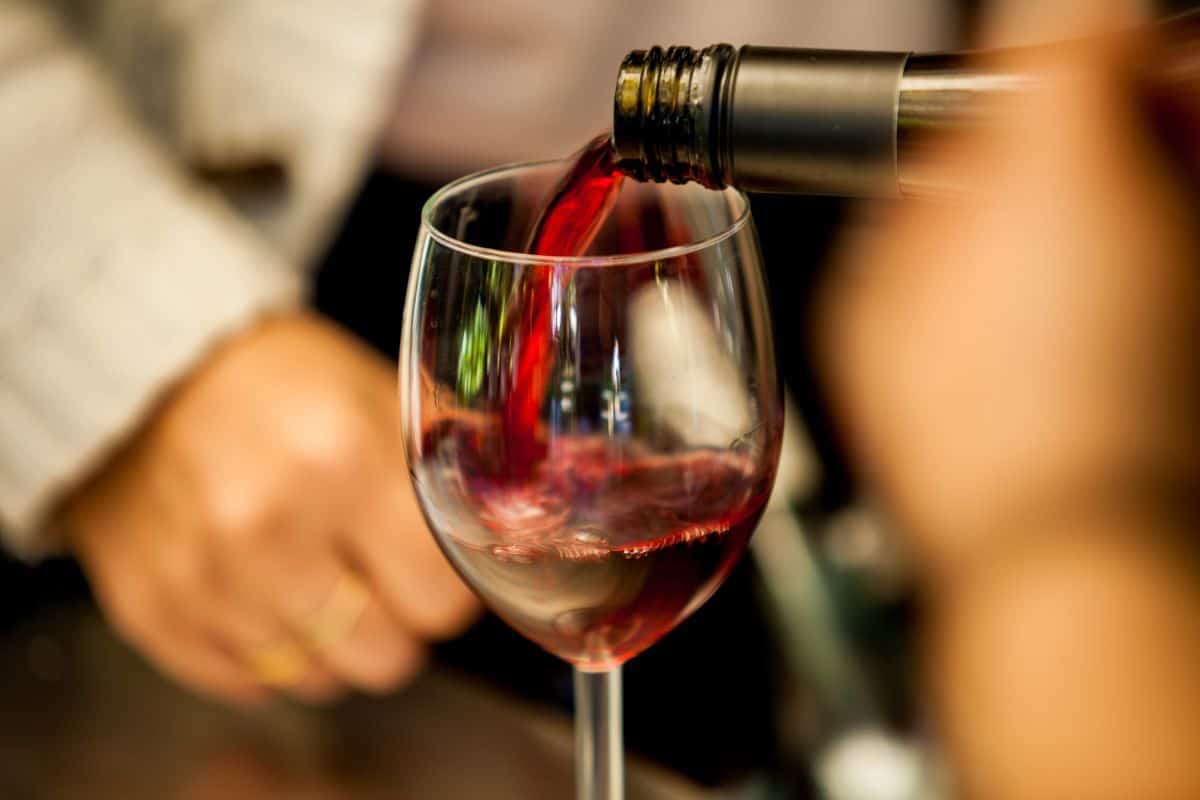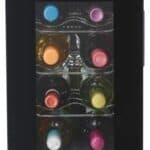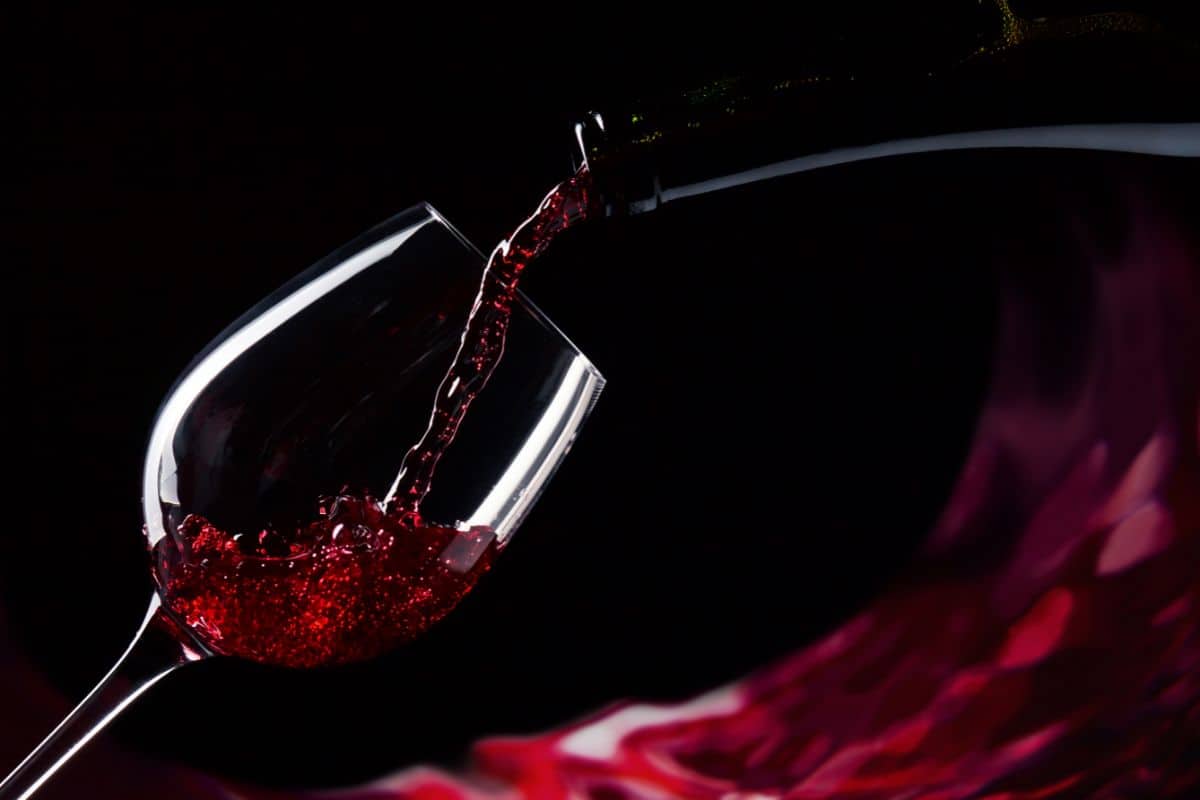Let’s face it, who doesn’t love a glass of wine every now and then. Across the globe, wine is one of the most popular alcohol drinks there is.
It’s perfectly normal to enjoy a tipple every now and then, perhaps at a meal with friends or in a hot bubble bath unwinding after a particularly stressful day.
But can drinking a lot of wine on a regular basis cause you to gain weight?
Throughout this article, we’ll delve deeper to find the answers to whether too much wine causes weight gain. We’ll look at the calories in wine, as well as how that compares to other alcoholic beverages

Calories In Wine
As you’ll probably already be aware, wine is a drink that is made from fermented grape juice. Grapes are a fruit, right?
So does that mean that wine is healthy? Not exactly, you won’t be getting one of your five a day from sipping at a Sauvignon blanc.
Most of the calories in wine come from alcohol and varied amounts of carbs. Now, a glass of wine isn’t necessarily all that high in calories, if you’re likely to stick to the one glass.
However, wine is quite easy to consume a lot of, and that’s when all those calories can start to add up.
Of course, there are several different varieties of wines available, and so they all have different calorie counts.
As a rule, you’ll tend to find that dry wines are lower in sugar and calories than sweet wines. Sparkling wine should always be your lowest-calorie option.
Below is a list of some of the most common selections and their average calories per 148 ml serving:
- Prosecco – 98 cal
- Rose – 125 cal
- Cabernet – 122 cal
- Pinot Noir – 121 cal
- Sauvignon blanc – 119 cal
- Chardonnay – 123 cal
So as you can see, the occasional glass of wine isn’t going to cause you any severe weight gain, it simply doesn’t have enough calories to do so.
That being said, if you have a few glasses of wine in an evening then that becomes around 300-400 calories. Finish the bottle and you’re looking at more than 600 calories.
Wine Vs Other Alcoholic Beverages
So we’ve established that one glass of wine is on average about 120 calories a glass. But how does that compare to other alcoholic beverages out there?
- Light beer – 100 calories per 12 ounces (355ml)
- Regular beer – 150 calories per 12 ounces (355ml)
- Heavy beer – 200 calories and above per 12 ounces (355ml)
- Vodka – 97 calories per 1.5 ounces (44ml)
- Gin – 112 calories per 1.5 ounces (44ml)
Wine tends to be higher in calories than most light beers and liquors. Although you should also factor in that depending on the mixer you have with your liquor your calories could increase significantly.
Wine does also seem to have fewer calories than most regular and heavy beers.

Wine And Weight Gain
If you consistently consume more calories than you are able to burn, it can lead to weight gain.
So if you have a weakness for a good few glasses of wine a night it is likely that these calories could all start to add up and cause you to gain a few pounds.
The issue with drinking wine is that it is also empty calories so you end up taking in all these extra calories but you’re not actually getting any sustenance from them meaning you’ll still need to consume more calories to satisfy your hunger.
Heavy drinking is quite likely to contribute to weight gain, and not just because of the empty calories.
When you drink a substantial amount of alcohol, your body will use it before carbs or fat to produce energy, and because of this, your body stores a higher amount of fat.
There are also several links between high alcohol consumption and poor diets.
Although it is undetermined whether this is due to the unhealthy choices that you tend to make when you are inebriated or whether those who drink more often also tend to eat less healthily in general.
Other Issues
Of course, weight gain is not the only issue that will arise from drinking heavily.
As long as you keep your alcohol consumption moderate then you shouldn’t have to worry about health risks – but it’s important to note that moderate is defined as one drink for women and two for men per day.
It is considered heavy drinking if you are consuming at least four (for women) or five (for men) alcoholic drinks a night on 5 different occasions throughout the month.
Heavy drinkers are at a higher risk of liver damage, dementia, depression, heart disease, and some forms of cancer.
So it’s really imperative that if you can you try to cut back the amount of wine that you’re drinking a night, as you could be damaging your health.
Final Thoughts
The occasional glass of wine here and there isn’t going to cause you to start gaining weight.
And if you particularly enjoy a small glass of wine of an evening, don’t worry I’m not here to tell you that you have to immediately stop.
However, if it goes much further than that glass of wine per night then you may start to notice the effects of the empty calories that you’re consuming, especially if you start moving in to the territory of finishing a bottle off a night.
Too much wine, like any alcoholic beverage, will start to have negative impacts on your weight, but much more than that it can also have lasting effects on your health.
It’s really just a case of everything in moderation, you shouldn’t have to completely deny yourself of a glass of wine if that is what you enjoy, however you should make an effort to not let it become a regular habit to be drinking several glasses in an evening.
- How to Learn Wine Tasting: Essentials for Beginners - March 10, 2024
- How to Learn to Like Wine: Cultivating an Appreciation for the Vintner’s Art - March 10, 2024
- Thanksgiving Sangria: A Flavorful Twist to Your Holiday Table - August 27, 2023








